BLACKDEATH
Your new album, Mortui Incedere Possunt, was released a few weeks ago on EAL Productions. You’ve finally received the physical copies, which is often a symbolic moment for musicians – a chance to come to terms with a process that can sometimes take years.
What is your state of mind? Did you achieve everything you set out to accomplish with this album?
PARA BELLUM – This time placidity was added to the usual joy of getting our new album, yes, “usual”, well, this is our eleventh album after all. The placidity had come from the fact that we had managed to record, release and receive it. We try not to read the news to maintain our peace of mind, but there is no escape from them, they leave their mark everywhere, you don’t know what to expect, what to prepare for. Besides the fact that the conduct of hostilities affects us in one way or another, we don’t know what kind of law the local politicians will ordain next. The order that has been established here is not that of North Korean yet, but is already almost Soviet. Even getting releases and merch of foreign labels is more in the vein of the Soviet “black market” lifestyle, i. e. you can buy anything you want if you have money and are ready to wait for a very long time. We are not complaining at all, we just remember Soviet times and can compare. Maybe it’s time to live according to Nietzsche’s testament in his “The Gay Science”: “Build your cities on the slopes of Vesuvius.” I mean, while working on “Mortui incedere possunt”, we really didn’t know how much time we had. Therefore, our joy of getting our new album was truly greater than usual.
As for “Mortui incedere possunt” itself, it seems that this time our brainchild (or rather spiritchild) is not stillborn for us. Actually, every time our new album was thrown into the material world, the circumstances were such that we were already in another dimension, on another astral level, so the newborn simply did not correspond to our spirit, we’ve seen more flaws in it than strengths. But not this time. So, yes, we achieved everything we set out to accomplish with “Mortui incedere possunt”.
–
BLACKDEATH’s discography is marked by evolution and has grown to develop a distinct personality. I believe the word you used to describe your approach for the last few releases, including Mortui Incedere Possunt, was ‘experimental.’
Yet, your music remains pure Black Metal, and it hasn’t become any friendlier throughout the process. It has certainly become more surprising and more daring, however. How should we interpret the word ‘experimental’?
PARA BELLUM – Black Metal traditionalism, like any attitude towards orthodoxy, sets some restrictive frameworks and boundaries that cannot be crossed. Of course, you can cross them, but then you stop being an orthodox. In the 90s we were a band that declared ourselves the true ones, we considered ourselves entitled to condemn others as false ones and fakes (here in Russia). Today it seems presumptuous, but if you look at the bands we declared war on, and see what they’ve become or have not become at all, you will understand that we were not so wrong. Anyway we don’t regret anything, except that perhaps we could have spent time in spheres that were more useful to us. In some ways we have remained the same fanatics. I remember one girl at a gig in Tel Aviv told us frankly that we were playing too angry music for our age, i. e. we haven’t become softer like some other Black Metal veterans. It was nice to hear, although we are not the only such die-hard band. This is about the spirit and atmosphere of Black Metal.
But when it comes to music itself as a combination of melody, harmony and rhythm, we get bored within traditions. When we are told that our best album is “Saturn Sector” or “Satan macht frei”, we can only sigh heavily, although it’s again a common thing, I believe, it happens to every band, when they have to smile politely at the statement that their best album is the equivalent of “Transilvanian Hunger” in their discography. To build a song on three tremolo picked riffs, oh no, that’s unbearable for us now. And there is another aspect in Black metal traditionalism as well: very often, when listening to a new album by some constant/devoted veterans, I hear that they are copying either themselves or some other veterans. From this position, I even understand DARKTHRONE, who are apparently ready to play anything to avoid repeating themselves. So we really need to treat them more mercifully.
But if it is taboo to cross the orthodox canons, then why can’t we experiment with them? An experiment within certain frameworks again – for an example, we will never put deathcore or post-hardcore elements in our music – but nevertheless it is a real experiment. That’s actually why we use the term “experimental,” we just want to show that we’re not worshiping the old school.
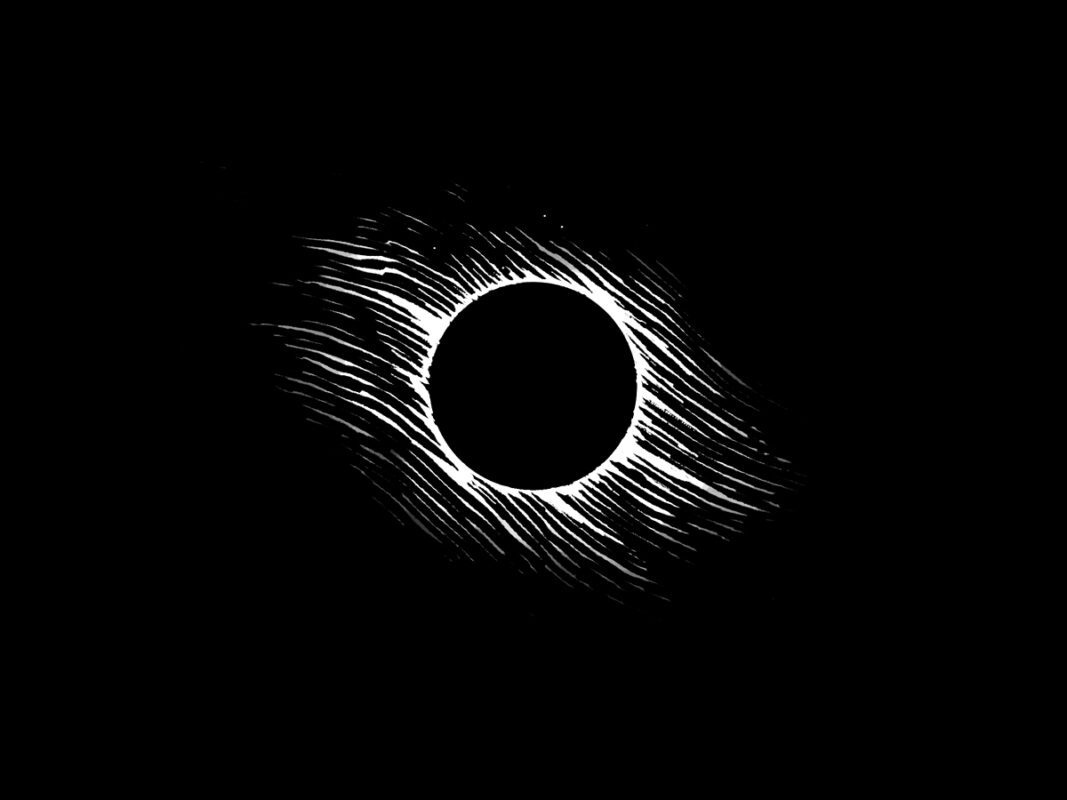
In a previous interview, I noticed that you passed a rather harsh judgment on some of your past works. I’ve been following BLACKDEATH since its debut, Saturn Sector, which dates back to 1998. I recall stocking and distributing Sombre Records’ vinyl version, released in 2001.
Over the years, I have remained curious about your evolution. I assume that for every album – regardless of how you view it today – it reflected the absolute best you could deliver at that particular point in time?
PARA BELLUM – That’s right, every time we release a new album, we start to be more critical of our previous works. Hence now, from the “Mortui incedere possunt” perspective, “Also sprach das Chaos” sounds more or less convincing for us, while “Phantasmhassgorie” causes bewilderment and disappointment. I’ll just keep quiet about the other albums.
Whether one or another recording corresponded to our level at that time is another question. We had a few records before “Saturn Sector” as BLACK DRAUGHWATH, but at that time we just didn’t understand what it meant to “give it your best shot.” The record is done – woohoo! – it’s all over! In its turn “Saturn Sector” was our first serious work, we recorded it in the very good studio, we prepared for the recording session to the best of our abilities, but the problem was that we believed that the most important thing for Black Metal album recording is the atmosphere and the state of our spirit, so during the whole session (recording/mixing/mastering), Abysslooker and me smoked four glasses of marijuana (in those days volume was measured in matchbox and glass which was equivalent to 10-12 boxes if I’m not mistaken). I have only two memories of that recording session: how after yet another joint we decided that we were now called BLACK DEATH, and how I, grinding down the pick on the string of my bass, cursed Abysslooker for composing such looong songs. Ah, Abysslooker just reminded me one tragicomical episode from that session, true in the vein of Philip K. Dick’s “A Scanner Darkly.” At some point of the guitar recording we had a distortion effect pedal failure, it just refused to sound in the studio monitors. We checked all the lines, all the connections, the sound engineer even turned off and on his mixing console. We lost half an hour and got nothing and were filled with despair when suddenly found that the damned thing was just unplugged – yes, it was a custom-made device and run not on battery power but through a special AC adapter. Well, we just put our poker faces on and continued working. We had never learnt what that sound engineer thought of it.
While “Fucking Fullmoon Foundation” really reflected the absolute best we could deliver at that particular point in time as you said, we really worked a lot on this material. Both “Satan macht frei” and “Vortex” weren’t full-on releases, the former because the band was really in agony at the time and we just wanted to get a new record quickly, and the latter because it was our first record with live drums and we felt like drums alone instead of a drum machine would be enough for our triumph. Since “Katharsis: kalte Lieder aus der Hölle,” our works have truly reflected the best we were capable of at that moment. And starting with “Phantasmhassgorie,” Polar Maya has been delaying entering the studio every time, citing that she’s not ready to record yet, and that it wouldn’t hurt for us to be better prepared. So we are becoming more and more demanding of ourselves.

Do you consider your past records as foundations upon which you can build the future, or as burdens that cast a shadow over what lies ahead? When the urge arises to begin work on a new record, do you approach it with a completely blank slate?
PARA BELLUM – When you cross a river, you don’t want to put your foot on a loose stone, something like that. But throwing our past records away as ballast is also not an option, because they are our spiritchild, even if not beloved. All that remains is to put them away into a box and occasionally take them out to reflect on our progress. As for the tabula rasa state, after each album we have some unused riffs and ideas, of course, but each time we use them less and less, and after “Mortui incedere possunt” we have already rejected all the remains. So this time we are starting totally from scratch.
–
Thomas Tannenberger (ABIGOR) once again took on the task of mixing and producing your new album, Mortui Incedere Possunt. His artistic prowess speaks for itself, though it’s no secret that he can occasionally be a challenging collaborator (but then, who among us isn’t at times?). Do you have any anecdotes about your experience working with him this time around?
As for the final result, I must say he achieved something remarkable with Mortui Incedere Possunt. The production feels organic and alive, capturing the raw essence of underground Black Metal while delivering both clarity and intensity.
PARA BELLUM – We started communicating with Thomas back in 2006, he already offered to mix our next album in those days, but as true black metallers we believed that we should do everything ourselves. We did not mix our recordings ourselves, even though we had some equipment and programs on the PC, every time all the work was done by the sound engineers in whose studios we recorded albums, and although we did not stand behind them with Kalashnikovs, they did everything under our control. Yep, we got on their nerves pretty much every time, considering that they didn’t accept Black Metal, it was quite a nerve-wracking experience for both sides. So our true collaboration with TT started in September 2017, when I wrote to him asking to check the “Phantasmhassgorie” lyrics. You know, one word led to another, so he mixed “Phantasmhassgorie” as well. So far he’s done for us three BLACKDEATH albums and one CTHULHU release.
Ah, it is customary to say about Russians that they are slow to harness, but quick to ride, however in our case this has always been about Thomas. You just need to be patient and have strong nerves working with him. When he gets into working mode, he turns into an erupting volcano and a perpetual motion device (well, almost), he throws all sorts of ideas at us, in addition his usual short and concise answers turn into long lectures on any topic. He explains to Maya how to record drums correctly, he gives me an extensive excursion into German grammar, he tells some morality tale about the recording of the next ABIGOR album, not to mention the intricacies of the sound engineer’s work. Well, you know his posts and comments on Facebook, in correspondence he doesn’t limit himself at all.
When we started working with Thomas on “Phantasmhassgorie”, we immediately realized how much we had lost by mixing albums “ourselves”, well, TT is a natural born producer. An outside observer always sees your work differently, he can catch in it what you miss, because, sad but true, your own music becomes generally a routine for you. In the case of TT, apart from the “different vision” his desire is added, the desire to turn your work into something that he himself will really and absolutely delight. For this he stops at nothing, for example, during last session he inserted his own scream “Fiat lux” into “In den Wolken der Venus” high-handedly and we did not object. Usually Thomas is merciless with my vocal track, he cuts and rearranges everything, and on “Mortui incedere possunt” he outdid himself, so I was not at all surprised when during another test listening I heard his scream.
TT often “strongly recommends” us to do something in sound or in the song structure we are not prepared for. Sometimes we argue, but more often than not it’s useless, TT can be very convincing in his arguments. In one passage on “Mortui incedere possunt” we (or rather me) resisted for a particularly long time against the blatant effect of the 60s tape reverb, so at long last TT dared us: “would that influence guys who quote Laibach, play drum rhythms often completely anti-BM drumming of the day, and such original riffs? I’d wonder, really.” Well, who are we to oppose TT?
Yes, on “Mortui incedere possunt” Thomas did for us his best job, we really didn’t recognize ourselves. We could listen to our songs as listeners getting to know their favorite band’s new album, rather than as musicians in control of their own recording. What could be better?
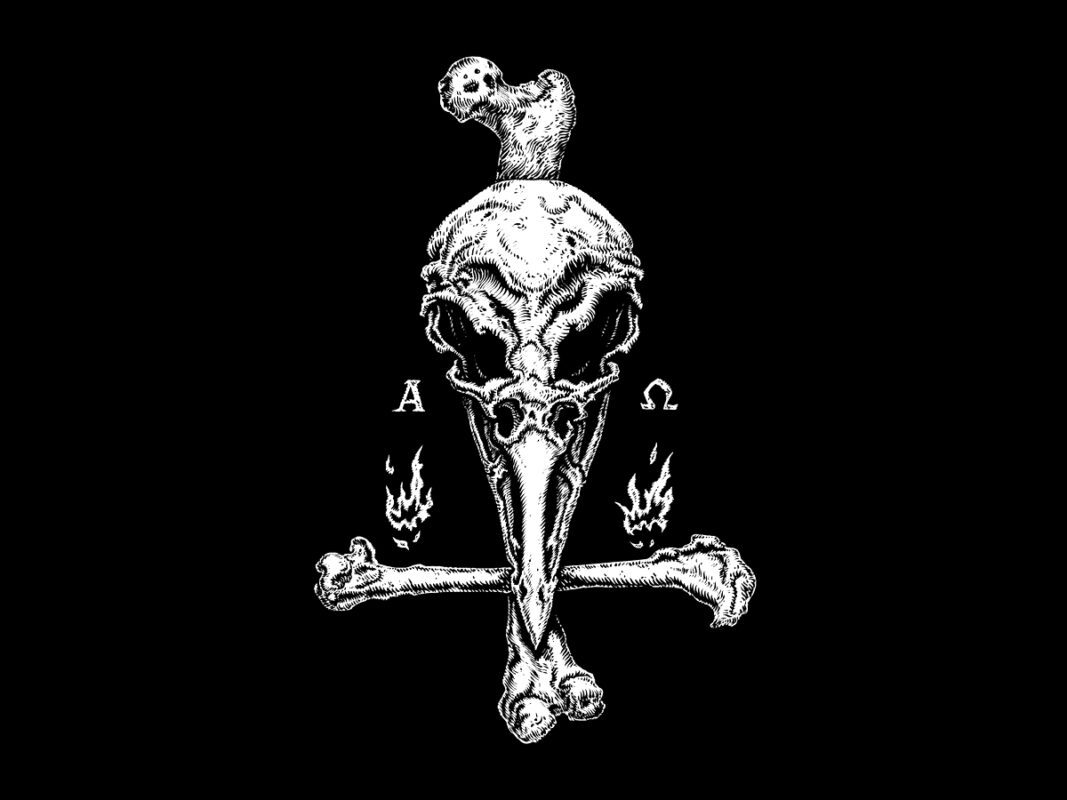
BLACKDEATH has remained largely overlooked by both the mainstream and, to some extent, even certain corners of the Black Metal underground – a rather unfortunate reality.
That said, it’s worth noting the immense respect you’ve garnered from highly esteemed musicians such as Lauri of SATANIC WARMASTER, Wrest of LEVIATHAN, and TT of ABIGOR. Their admiration for your work speaks volumes.
How do you explain this phenomenon? Why do influential artists, who have themselves set many of the scene’s acclaimed standards, resonate so deeply with your music, while a considerable portion of the Black Metal audience seems to overlook it? Where do you think this divide originates?
PARA BELLUM – If we knew… Our old friend Arjan, who is now an inmate of our Arkham, has been saying since the beginning that BLACKDEATH are a typical “love us or hate us” band. Actually, we are like this in “ordinary” life too, we are “love us or hate us” persons, me, Abysslooker and Polar Maya as well, we are definitely not “cool guys”, so maybe it’s about our aura, which is transferred to our music, and not everyone can digest it. Maybe.
The problem is that if we knew the answer to this question, would we do anything to fix the situation? Something tells me that the only way to fix this “uncaused underregarded status” would be to stop being ourselves. So I doubt that we would fix this sigh-worthy situation. Of course it’s sad, but we’ve gotten used to it, well, as Raskolnikov (“Crime and Punishment” by Fyodor Dostoevsky) said, “man grows used to everything, the scoundrel.”
We are very grateful to everyone who works with us and supports us.
–
Beyond your long-standing involvement in the Black Metal scene – let’s not forget that DRAUGWATH, the band predating BLACKDEATH, began in 1995 – you have also been deeply engaged with countercultures in a broader sense.
Abysslooker, BLACKDEATH’s main songwriter, translated H.P. Lovecraft’s Fungi from Yuggoth, and his work was subsequently published by a major Russian publisher. In this way, he contributed significantly to introducing Lovecraft’s writings to readers in Russia.
You, under the banner of Revolva, have translated a diverse array of writings into Russian, including works by Ted Kaczynski (known as the Unabomber), Ragnar Redbeard, and even Terry Gilliam’s screenplay for Brazil. Of course, this list is far from exhaustive.
Furthermore, your 1990s fanzine editions featured a wide range of articles that extended far beyond music, showcasing your broad intellectual curiosity at an early age.
In short, this history demonstrates that your involvement in countercultures goes well beyond music. It’s a deeply rooted passion, and you actively engage with it on multiple fronts. Could you elaborate on this aspect of your life? How do you see the interplay between your musical work and these broader cultural engagements?
PARA BELLUM – It’s actually quite simple with our ‘zines. We issued our first ‘zine, Maggots, in February 1994, we didn’t really have our Death Metal band or Industrial project back then, although we tried very hard. Our Black Metal ‘zine Sotsirh Susii (“Jesus Christ” in Russian backwards) was printed during the BLACK DRAUGWATH era, two issues were published (June 1996 and October 1997). Already in those issues we printed many non-musical articles on occult, philosophical and historical topics (by the way, the “Mortui incedere possunt” lyrics contain many quotes from different authors, and this is roughly what the contents of the Sotsirh Susii ‘zines were, at least the second issue for sure), so in our next printed project Svinetz Saturniantza (“Lead of the Saturnian man” in Russian, an occult term from Rudolf Steiner) there was practically no space for Black Metal, especially in the second issue. This time we also published two rather voluminous magazines (May 2000 and February 2003), and all this happened when BLACKDEATH were on the so called “studio project” stage.
Our progress in publishing led to the fact that we almost completely excluded Black Metal from the subject of our printed interests. Once again, Black Metal does not set such a wide framework for creativity, and we were cramped within these boundaries. We were just not interested in finding the next Black Metal artists and talking with them on “elevated topics”, especially since many black metallers just did not understand us. Well, intellectualism wasn’t as popular in Black Metal back then as it is today.
So we lost interest in issuing the magazine and started publishing books in small print runs under the Revolva printing house banner. Those books were “Might is Right, or The Survival of the Fittest” by Ragnar Redbeard (2005), a collection of poems by Charles Manson “Mechanical Man” (2005), “Industrial Society and Its Future (The Unabomber Manifesto)” by Theodore Kaczynski (2006 and 2011), a collection of letters and messages by Zodiac “I am not sick. I am insane” (2008), scenario of “Brazil” by Terry Gilliam (2009), and a collection of poems by Russian serial killer Vladimir Mukhankin “Excluded to the bitter end” (2010). Technically “Brazil” was our only bootleg, but at that time it was a very relevant text for Russia and over time it turned into a dark prophecy, alas. While working on the second edition of the Unabomber Manifesto, I corresponded with Ted, well, with all due respect to his intelligence, he was an unbearable formalist. I still have a bunch of letters from him, and I sent him our first edition of his book, he was happy to receive it, but then he came under severe sanctions, all his books were taken away from him, so our book was returned to me with an ADX Florence federal prison stamp. I also corresponded with Mukhankin, I sent at his request some health magazines and comics to his “Chyorny del’fin” (Black Dolphin Prison), well, he was an ordinary criminal who wanted to profit from a man from the outside. As for Manson, I received from him only an envelope with his autographed photos, but I corresponded for a long time with his cellmate at the Corcoran prison, who was a native of Lviv and was serving a life sentence for the murder of the only son of American comedian Bill Cosby. Regarding the Zodiac Killer, we just dug through tons of material on the Internet, in my research I tried to focus on the occult background of his “actions”, well, I wasn’t very successful in that.
Abysslooker first translated Lovecraft’s sonnets “Fungi from Yuggoth” for Svinetz Saturniantza # 2, over time he became a professional translator of fiction, and a major Moscow publishing house offered him to republish his translation as a book. Abysslooker significantly edited his earlier translations for this project. Other works by Lovecraft were also published in his translation. So at least in one sphere our subcultural passion has reached a professional level here in Russia.
In the recent past I resurrected Sotsirh Susii, this time in English, including only interviews with Black Metal bands. With Arjan’s help I published two issues (October 2019 and March 2021) and now I can’t get the strength to do a third issue. I hope it’s just a matter of time. But I don’t know what events will make me resurrect Revolva. To make publishing a real business and to get revenue from it, you have to do only that, it means that music would most likely have to be forgotten. Our books were published irregularly, we did not recoup any of our projects, we were driven only by enthusiasm. I say honestly that in the current conditions we prefer to channel our enthusiasm and madness into music only. And there is another circumstance at work here. René Guénon said in his “The Reign of Quantity and the Signs of the Times” that increasing the speed of events as we approach the end of a cycle can be compared with the acceleration of falling bodies, so the development of modern humanity is very reminiscent of the movement of a body thrown downwards and flying faster the closer it is to the very bottom. Perhaps what is happening around us has a strong influence on us, we often notice with a real, almost mystical horror (in the spirit of Gustav Meyrink), how quickly time flies. The end is approaching. Apocalypse now. So it’s better if we focus just on music so that we can still do something else.
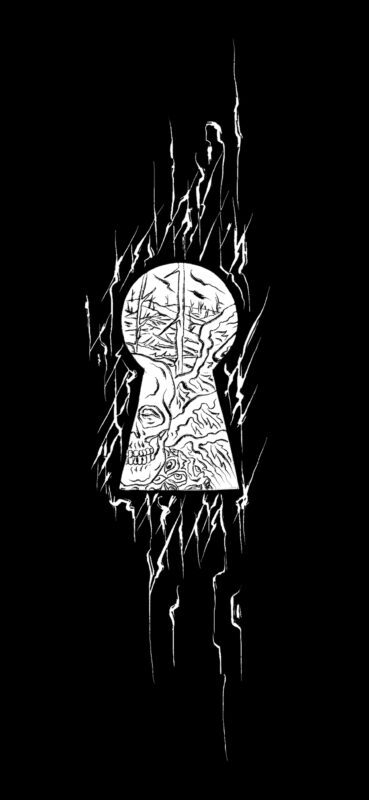
I personally find Maya’s drumming on Mortui Incedere Possunt to be a standout feature. Not necessarily for technical prowess – she’s not the fastest or most technical drummer – but for the musicality she brings. Her astute sense of rhythm and her ability to add color and nuance to a riff elevate the overall composition. In this way, she avoids falling into the modern tendency to reduce drumming to a sterile quest for (triggered) BPMs, which has become all too common.
Could Maya share some insight into her approach to drumming? How does she conceptualize her role within the music, and what inspires her stylistic choices?
POLAR MAYA – The period of writing and recording the album was strange: “Lost in your quantum world of probabilities and needing certainty.” An external presence in a place and time and total internal isolation from this place and from this time. I think the strangeness of the drum parts can be explained by this strange time and condition. Something similar to Sartre’s “Nausea,” when looking out from your well-organized and well-defended fortress, you see “a disgusting picture of naked existence, devoid of the veils that usually hide perceived things.” As a result, the drum parts turned out to be not so much thought out in every detail – the rational way of songwriting, but emotional and often irrational, based on the feeling and perception of guitar and bass parts.
I can’t say that I had the task of making the drums parties as some kind of specially anti-trend or non-standard for the genre. I just wanted to make them fit the music, and that’s how this “fit” was seen at that time, for good or not. Many drummers become cramped within their narrow genre and they try to get out of it by complicating the parts, speeding up, combining styles. And it often works if the task is not to show your skills and exceed technical limits, but really to do something new and interesting. Of course, although in general I perceive drums as a foundation, which, first of all, should cement the soil, not interfere and not bulge too much, I also partly had ambitions to do something different from everyone else, at least limited and within my own technical capabilities. Whether it turned out to be too much, it’s hard for me to judge for myself.
In fact, I delayed our trip to the studio for a quite long time, thinking about whether my parts fit the music enough the way it seems to me now, whether they are too simple in some parts, aren’t they too far out of the genre framework (which was later confirmed by TT’s remarks). In general, again, how rational is all this and is it the right decision to bet on the feeling or do I need more time to think and maybe change some drum parts. As a result, I just didn’t have time for these internal disputes, the time in the studio was set.
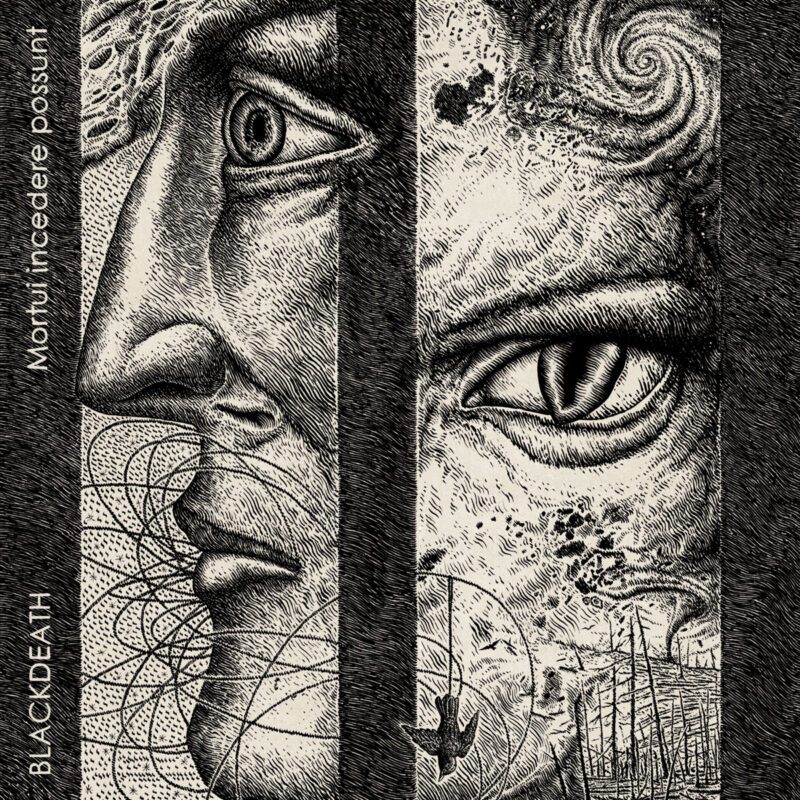
Could Maya share her perspective on the artwork for Mortui Incedere Possunt? It has received praise from several designers I regularly converse with – individuals who are often highly critical of contemporary trends in visual design. What inspired the artwork, and how does she feel it aligns with the themes and atmosphere of the album?
POLAR MAYA – As is usually the case with us, the idea of the cover did not come immediately. The final cover appeared last in a number of options that we were considering at that time. I made sketches with different ideas. Usually, each of us offers some idea, which, if it is generally accepted, is then supplemented with details from the other members. But this time, none of us were completely satisfied with all the current ideas. Since the album is a complete work and the cover is a part of this whole, I do not think that the artist should always know better – at least this concerns the concept, so it is a long-standing tradition of the band to compose the main concept from the flow of ideas of all members.
This time, the concept of a cover based on a Picasso painting “Woman sitting with crossed arms” (Femme assise aux bras croisés, 1937) was proposed by Para Bellum, who have noticed it in the “Oppenheimer” movie by Christopher Nolan. This was the idea that, despite all its strangeness (it would seem, where Black Metal is and where Picasso is – especially since none of us is a fan of this artist’s work and even a admirer of them), everyone accepted at once. At first, the tech task sounded for me like “a strange crooked face in an etched manner … a creature sitting behind black bars.” As far as I know, it was an irrational epiphany, the fired trigger, and not the result of long thought and search. Then when I started to draw the main parts and it came to adding details, it turned out that according to one version Oppenheimer in the movie was looking at this particular Picasso painting because he saw the connection between quantum mechanics, its four dimensions, and Picasso’s manner of depicting reality in the form of an abnormal, unfamiliar combination of dimensions. He stares at this picture for a long time, and the picture interspersed with shots of moving sparks of light in space. The moment from which the physicist began to conceive of an atomic bomb, which he would later bring to life. In addition, I wanted to show this dual quantum existential state through the eyes in the picture – one looking away into the infinite cosmos and into the abyss inside itself and the second looking direct at the viewer/humanity with a feeling of wrath.
So the cover reflects the idea of Chaos Magic common to the entire album – including chaos, which for our consciousness is quantum mechanics is, with its very hard-to-perceive logic and an additional dimension, chaos, one of the symbols of which in the physical sense is the behavior of nuclei in an atomic bomb, with a deliberately uncontrolled nature of reaction, chaos in its religious meaning reflected in all the lyrics to this album.
You can say that all these meanings are far-fetched, because it all started just with a picture from a movie. However, in the case of this cover, it surprisingly turned out that all these fragments came together and merged into the overall outline of the album. So everything turned out to be quite irrational here too.
–
If I’m not mistaken, your decision to write and perform lyrics in German was influenced by LAIBACH’s similar choice. Adopting a language other than your mother tongue can pose challenges, at least initially. How would you assess your proficiency in German today? What aesthetic and conceptual motivations drove you to embrace this linguistic direction, and how has it shaped your creative process?
PARA BELLUM – The German language, like every language, has its own special energetics, for me and Abysslooker this energetics had an almost magical effect. Beyond that you should know that German speech is perceived in Russia somewhat painfully at the archetype level. Basically, people here will first remember the Second World War, then the First World War, and only then they will begin to think objectively that the German language is one thing, and the dark pages of Russian history are something completely different. So we thought it would be a good irritant to make our lyrics in German. It was a true provocation in the spirit of Laibach. Yeah, if you want to be the “most hated band”, that’s the way you have to think. And it seems that in Russia we have achieved our goal.
In 1998-2000 I attended German language courses, it was a state educational institution with seasoned teachers, I was one of the most diligent students in my group, even a favorite of some teachers, yep. In those years I read a lot of German literature, I read almost all of Remarque’s novels in the original, not that I was delighted with this writer. I have never read his works in Russian translation, by the way. Over the years, my practice in German has declined, so now before recording vocals, in order to tune in to the German pronunciation, I listen to BETHLEHEM (“Mein Weg” as a rule) and, pardon me, RAMMSTEIN. It was “Deutschland” that used for “Mortui incedere possunt”.
Now my lyrics are checked by TT from time to time, but before that the checking was random. I remember, to make sure that I had built one phrase for “Fucking Fullmoon Foundation” correctly – well, it was a very important phrase, – I pestered a German tourist in Peterhof Park. Even a security guard came running, but everyone calmed down when I explained what I needed. However, the tourist began to openly panic when I finished writing my phrase on a piece of paper. She screamed “nein! nein!” so the security guard came running again. I thought that I had made an egregious error somewhere in that phrase, but it turned out that she did not agree with the anti-existential meaning of the phrase: “Unter den Toten geht es mir besser als den Lebenden” (I am better among the dead than the alive). Me and Abysslooker wrote this when we got lost in the local cemetery, well, it seems we were Chaos Gnostics almost from the very beginning, we just didn’t know the term.
Of course, I understand that my German is not perfect, I have an accent. To feel what it is like, how a native speaker perceives my accent, I listened to Kypck (Kursk), right, I listened to them only for the vocals, I would never listen to them voluntarily. I found that there is really something in it, the accent I mean. Although Erkki Seppänen sings (oops, sang) in Russian better than I do in German, well, he is a teacher after all. Oh, wait, and do you know how charming the song “Штиль” by Ария performed by RAMMSTEIN (i. e. Till Lindemann & Richard Kruspe) sounds to my Russian ears? I even like this cover (“Schtiel”) more than the original. So I realize my imperfection, but I think it has a chance.
I also admit that it is not so easy for me to sing in German and especially learn lyrics for live performances, but to some extent I have already become a hostage of this idea. So we cannot give up, we will continue further with our German lyrics.
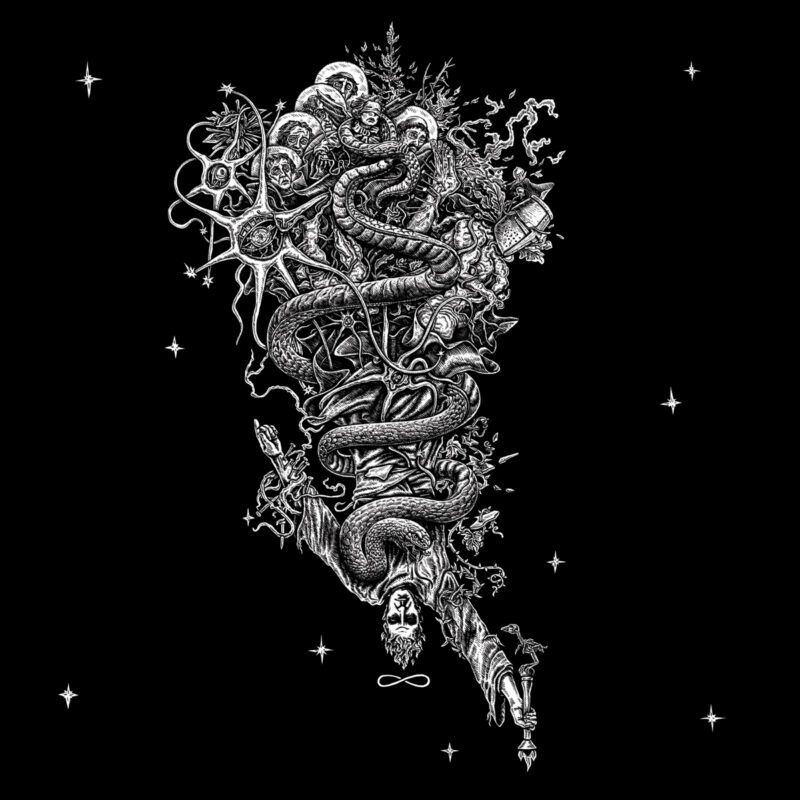
As a fellow LAIBACH enthusiast, I’m curious—what is your favorite era of the band? Personally, while I can’t say I enjoy absolutely everything they’ve done, I find each phase of their career at the very least intriguing. Even when I don’t connect with a particular work on an emotional level, I can’t dismiss it outright, and that quality alone is remarkable for such a long-running and prolific project.
One of the things I admire most about LAIBACH is their mastery of reinventing their own material. A standout example is their transformation of the classic “Smrt za Smrt” from the early 1980s into a monumental orchestral epic during their 2016 tour. It’s a level of reinvention I can hardly imagine any metal band achieving.
PARA BELLUM – LAIBACH are an old love of ours. They charmed us with their Martial Industrial (“Opus Dei”, “Let It Be”, “Macbeth”) and over time we had to evolve to adapt to their new genre experiments. “Kapital” (1992) was incomparable for us, although rather unordinary, but when back in 1994 they released “NATO” with the famous “Final Countdown”, we almost disowned them, yep, it was a poppy work for us. Now, of course, we completely admire that album. For better or worse, we have never been citizens of NSK.
Laibach came to Russia very often in the past, and although generally we don’t go to concerts, even underground ones, we made an exception for them, even two times. The first performance was in September 2005 during their tour in support of the “Anthems” compilation, they performed mostly “WAT” and various old songs, the second one was in March 2011 during their “Laibach Revisited” tour, it was their reconsidered retro stuff and something from “Volk”. They played an updated version of “Smrt za smrt” too, but yet it was not the version you are talking about.
You are right, the 2016 orchestral version is fundamentally different from the 80’s version (on “Rekapitulacija 1980-84”) and especially from the 1982 live version (on “Ljubljana – Zagreb – Beograd”). I think the secret behind the transformation of “Smrt za Smrt” is simple: LAIBACH just decided to make a cover of themselves, and they did it in their usual manner, that is they completely rethought the original. Well, metalheads mostly just replay songs from other bands or singers, we can go crazy performing someone else’s song, especially if the original wasn’t in the metal genre. This delight is quite enough for us, metalheads, but not for LAIBACH.
What never changes in “Smrt za Smrt” are the lyrics. It would have been more appropriate for some Goregrind band, but in reality it is just a description of some historical events in Yugoslavia I think, at least it was usual for early LAIBACH. After Josip Broz Tito’s death in 1980, an economic crisis erupted in Yugoslavia, and in 1981 the first stage of the Kosovo conflict took place. Most likely, the atrocities described in “Smrt za Smrt” are somehow connected with that difficult time for Yugoslavia, although I was never able to find the true meaning of this song. This reveals another unique side of the LAIBACH art – their passion for riddles and provocations.
Although I think that LAIBACH just took to the extreme the artist’s credo of offering some kind of rebus under the guise of their work, so that later everyone would rack their brains “what did they want to say?” Besides, LAIBACH grew up and formed in Yugoslavia, but believe me, any socialist regime develops in the artist the habit of hiding their main idea. As a phenomenon LAIBACH would never have appeared either in Western Europe (you have too much freedom) or in the Soviet Union (we have too much pressure), Yugoslavia was the ideal place for their birth.
–
A friend once played me a song by Гражданская Оборона (CIVIL DEFENSE), the iconic “Русское поле экспериментов” (“Russian Field of Experiments”), and I was instantly captivated by its decayed, almost apocalyptic atmosphere. It’s an outstanding track.
The band’s frontman, Yegor Letov, is a weird figure – arguably from a French perspective. His work, as someone aptly put it, seems inseparable from the broader context of post-Soviet civilization.
Did you engage with that aspect of Russian counterculture?
PARA BELLUM – Oh, yes, even we, punk haters, accept GRAZHDANSKAYA OBORONA. We made exceptions for them too, we attended their concerts twice, there would have been three actually, but one was canceled. So the first such event took place in November 1995, a month after recording our debut demo “Dwellers of the Cursed Forest.” It was an acoustic performance, because Letov didn’t have time to complement the full line-up for the show in St. Petersburg, so he just sat in front of the crowd with his acoustic guitar and sang his songs. The organizer of the concert was the National Bolshevik Party of the writer Eduard Limonov, well, Egor Letov together with the philosopher Aleksandr Dugin were the founders of this political formation as well, of course, this party in banned in Russia now. In fact, that concert was a pre-election campaigning, since at that date the NBP participated in the elections for the State Duma (the lower house of the Federal Assembly of Russia). Letov sang against the backdrop of some communist flags [https://www.youtube.com/watch?v=QQUhhdC8tNw ], and at the end of the show some bastard stole the NBP flag in full view of everybody and ran away. What admirable impudence! They (NBP) achieved nothing with that kind of campaigning, because the concert attracted the kind of audience that doesn’t go to the polls. Of course, they lost those elections.
Yes, it was a very strange trick, the marriage of Letov and a communist-like party. During the Soviet Union times, he was considered an anti-Soviet artist, even a fighter against the Soviet regime and all that, but in the 90s, when liberal ideology reigned in Russia, he, on the contrary, sided with the communists. I think his non-conformist desire-to-be-always-against worked here, in addition, Letov declared that he had always been a true bolshevik/communist, while he criticized the Soviet power just because they were fake communists. Something like that. Many fans turned away from Letov because of such statements. But already in March 1996, another scandal occurred when Letov broke with the NBP and began to support the Soviet-type communists. Later, there were some more scandals, but gradually he began to move away from politics, and by the end of his life (February 2008), he had completely distanced himself from politics.
Oh, I remember how the news of his death came. I was riding the subway, at that time there was no Internet in there, and phone messengers were not used yet, everyone communicated via SMS. And then at some station several passengers received an SMS almost simultaneously, and a wave of “Letov died,” “Letov died,” “Letov died” went through the metro coach. Yes, he was always popular, very popular, no matter what statement he made, no matter under what banner he sang his songs. He was truly loved. Now the official version of his death is cardiac arrest, however, at first there was information that he died like Bon Scott and John Bonham, i. e. choked on his own vomit. One way or another, he had hard problems with alcohol at the end of his life.
So the second our visit to the Letov’s performance was in December 2000, and then I even managed to sneak backstage and get to Letov’s dressing room, I just wanted to interview him for our magazine (in May our Svinetz Saturniantza # 1 was issued, and we were collecting material for # 2), sadly his manager or someone like that kicked me out because I could hardly stand on my feet. Then I found myself on a metal service balcony above the stage, I was walking back and forth in desperation, I didn’t know how I ended up there and how I could get out, while Letov was singing below me. I could have puked and become the hero of a sad story, but at that moment I felt good. Unique memories, aren’t they? I really don’t remember at all how I turned out to be behind the scenes, it was an indoor stadium with many corridors and doors, there were security guards almost everywhere. And I must say that I was very lucky with my trip, this concert turned out to be scandalous because the police beat up the fans after show. The crowd went wild because the sound was really shitty [https://www.youtube.com/watch?v=h6NUPrtfPUM ]. Believe me, we came to the concert with a firm intention to talk to Letov, I even had something like a dictaphone, but we met so many our old friends there, I mean metalheads of course, and almost all of them were not empty-handed: due to Letov’s performance, the sale of alcohol was banned at that venue, and not a single store in the neighborhood sold alcohol as well. That is why I ended up almost mentally disturbed. This story is very indicative that this punk singer was popular even among metalheads.
Actually during our “Gift” era we were going to do a Гражданская оборона cover. It was “Бога нет” (There Is No God), a song from “Невыносимая лёгкость бытия” / “Сносная тяжесть небытия” (The Unbearable Lightness of Being, 1997 / The Bearable Heaviness of Unbeing, 2005). It’s a pretty tough song without a punkish attitude, even LAIBACH-esque totalitarian to some extent [https://www.youtube.com/watch?v=xxglSgAR9gU ]. And it has pretty abstract lyrics, suitable for some Post Black Metal band maybe. It was a great candidate for us except for the final line “Да не наступит конец человеческой песне” – “May there never be an end to the human song,” i. e. “may human life continue.” We couldn’t accept such a humanistic passage, so we abandoned the idea, sorry.
From a certain point of view, Letov can be considered an “accursed poet” (poète maudit), right, he really was a weird person. While from a religious point of view he could even be called a holy fool (yurodivy in Russian tradition), he was the real Fool from the Tarot deck. I think that his most personal song is “Про дурачка” (About a Fool) [an original “non-electric” version https://www.youtube.com/watch?v=64L457mX7lA , an English cover https://www.youtube.com/watch?v=HGlzYsTGzTc ]. He wrote this piece in a sick delirium after returning from the trip to Lysaya Gora (Bald Mountain) on the Urals, where he studied, I quote, “mystical phenomena and occult sciences.” Exactly, like many (mad) poets, he voiced superhuman principles, that is why, by the way, his songs are loved by people who are completely opposite in nature as well as they make an impression even on those who do not know Russian at all. And it is really difficult for me to say who stood behind him, God or a legion of demons.
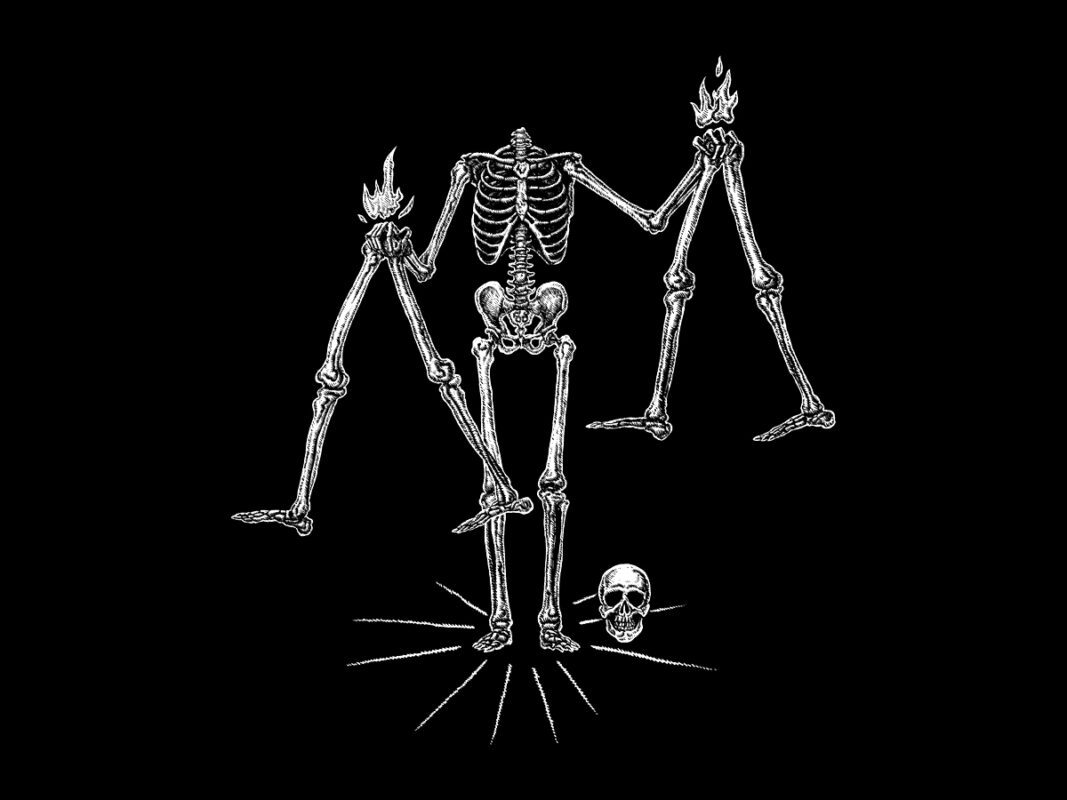
Speaking of post-Soviet civilization, I’ve, of course, read Svetlana Alexievitch’s harrowing « Secondhand Time: The Last of the Soviets ». It often struck me as if, while the West was naively whistling SCORPIONS’ Wind of Change, the reality on your side of the former Iron Curtain was anything but – and rather what is described by the witnesses speaking through Svetlana Alexievitch.
PARA BELLUM – None of us have read Alexievich’s books, so to get an idea of her, I looked at her Wikipedia article. Ah, I see, no, we have never been interested in human rights activists, but perhaps it’s high time, yep. By the way it’s strange that her books are not banned here in Russia yet.
Well, the Soviet Union collapsed back in December 1991, by that time, we had already said goodbye to Thrash Metal and were firmly stuck on Death Metal. I suppose the next three years were quite chaotic both for the social/economic life of Russia, because there were some pretty drastic changes from socialism to capitalism, and for the metal community, because there was a certain crisis in our music, including that grunge intrusion. But I can say that for me and Abysslooker both crises certainty ended in 1994, with the DARKTHRONE “Transilvanian Hunger” / BEHERIT “H418ov21.C” tape. From that time on, Black Metal was not just another style for us, but Cult.
All our attempts to create a serious Death Metal project failed, but Black Metal finally opened Portal for us. For the first time I heard Abysslooker’s Black Metal drafts in the summer of 1994 in Kharkiv. We had relatives living there (for a long time they live in Germany now), so we took the opportunity to meet with our tape trading friends, and one night we were hanging out in the rehearsal room of some band, I don’t even remember their name. Abysslooker took their guitar and started playing his music, Kharkiv guys certainly didn’t like it, well, they played Death Metal, but I really liked his riffs – these were sketches of what later became “Dwellers of the Cursed Forest.” I told Abysslooker that it was time to start a Black Metal band, so we did.
As a general matter it was a pretty fun summer. I think that Alexievitch told the most dramatic stories in her book, but the former Soviet people did not forget to have fun, of course. These were hard times (when were there any easy times in Russia?), but the streets here were not roamed by the walking dead at all. Anyway, I’ll repeat myself, since 1994, we didn’t care about any drama, we enthusiastically devoted ourselves to Black Metal, so we won’t be able to become witnesses for the Alexievitch prosecution.
I want to say one more thing about “Second-hand Time.” I get the strong impression that this work like all of Alexievitch’ books was addressed primarily to the Western readership, which is why, by the way, she eventually won the Nobel Prize. Russians, well, actually Alexievitch is Belarusian, but that doesn’t change the essence of the matter, so Russians may curse those hard times, those “turbulent 90s,” but they don’t need this book to be impressed. Russia is a country where everything will be as the tsar says. It doesn’t matter what title he has – Chairman of the Council of Ministers, General Secretary of the Communist Party or President, for Russians he is a tsar. This is not at all a consequence/cost of social conditions or something like that, this is the Russian mentality itself, so you can’t change anything here. Russians can pretend to play democracy, but they will still wait for their tsar, as it was in the early 90s. And they got him, their tsar.
